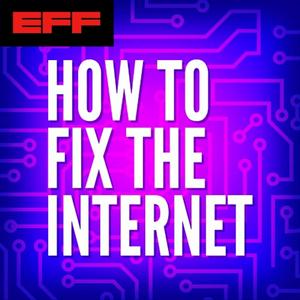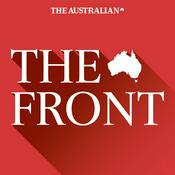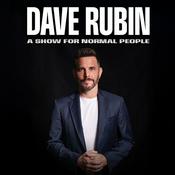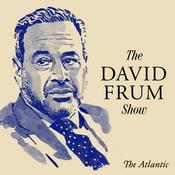65 episodes
- All this season, “How to Fix the Internet” has been focusing on the tools and technology of freedom – and one of the most important tools of freedom is a library. Access to knowledge not only creates an informed populace that democracy requires, but also gives people the tools they need to thrive. And the internet has radically expanded access to knowledge in ways that earlier generations could only have dreamed of – so long as that knowledge is allowed to flow freely.
(You can also find this episode on the Internet Archive and on YouTube.)
A passionate advocate for public internet access and a successful entrepreneur, Brewster Kahle has spent his life intent on a singular focus: providing universal access to all knowledge. The Internet Archive, which he founded in 1996, now preserves 99+ petabytes of data - the books, Web pages, music, television, government information, and software of our cultural heritage – and works with more than 400 library and university partners to create a digital library that’s accessible to all. The Archive is known for the Wayback Machine, which lets users search the history of almost one trillion web pages. But it also archives images, software, video and audio recordings, documents, and it contains dozens of resources and projects that fill a variety of gaps in cultural, political, and historical knowledge. Kahle joins EFF’s Cindy Cohn and Jason Kelley to discuss how the free flow of knowledge makes all of us more free.
In this episode you’ll learn about:
The role AI plays in digitizing, preserving, and easing access to all kinds of information
How EFF helped the Internet Archive fight off the government’s demand for information about library patrons
The importance of building a decentralized, distributed web to finding and preserving information for all
Why building revolutionary, world-class libraries like the Internet Archive requires not only money and technology, but also people willing to dedicate their lives to the work
How nonprofits are crucial to filling societal gaps left by businesses, governments, and academia
Brewster Kahle is the founder and digital librarian of the Internet Archive, which serves millions of people each day and is among the world’s largest libraries. After studying AI at and graduating from the Massachusetts Institute of Technology in 1982, Kahle helped launch the company Thinking Machines, a parallel supercomputer maker. In 1989, he helped create the internet's first publishing system called Wide Area Information Server (WAIS); WAIS Inc. was later sold to AOL. In 1996, Kahle co-founded Alexa Internet, which helps catalog the Web, selling it to Amazon.com in 1999. He is a former member of EFF’s Board of Directors. - The human brain might be the grandest computer of all, but in this episode, we talk to two experts who confirm that the ability for tech to decipher thoughts, and perhaps even manipulate them, isn't just around the corner – it's already here. Rapidly advancing "neurotechnology" could offer new ways for people with brain trauma or degenerative diseases to communicate, as the New York Times reported this month, but it also could open the door to abusing the privacy of the most personal data of all: our thoughts. Worse yet, it could allow manipulating how people perceive and process reality, as well as their responses to it – a Pandora’s box of epic proportions.
(You can also find this episode on the Internet Archive and on YouTube.)
Neuroscientist Rafael Yuste and human rights lawyer Jared Genser are awestruck by both the possibilities and the dangers of neurotechnology. Together they established The Neurorights Foundation, and now they join EFF’s Cindy Cohn and Jason Kelley to discuss how technology is advancing our understanding of what it means to be human, and the solid legal guardrails they're building to protect the privacy of the mind.
In this episode you’ll learn about:
How to protect people’s mental privacy, agency, and identity while ensuring equal access to the positive aspects of brain augmentation
Why neurotechnology regulation needs to be grounded in international human rights
Navigating the complex differences between medical and consumer privacy laws
The risk that information collected by devices now on the market could be decoded into actual words within just a few years
Balancing beneficial innovation with the protection of people’s mental privacy
Rafael Yuste is a professor of biological sciences and neuroscience, co-director of the Kavli Institute for Brain Science, and director of the NeuroTechnology Center at Columbia University. He led the group of researchers that first proposed the BRAIN (Brain Research through Advancing Innovative Neurotechnologies) Initiative launched in 2013 by the Obama Administration.
Jared Genser is an international human rights lawyer who serves as managing director at Perseus Strategies, renowned for his successes in freeing political prisoners around the world. He’s also the Senior Tech Fellow at Harvard University’s Carr-Ryan Center for Human Right, and he is outside general counsel to The Neurorights Foundation, an international advocacy group he co-founded with Yuste that works to enshrine human rights as a crucial part of the development of neurotechnology. - If you believe the hype, artificial intelligence will soon take all our jobs, or solve all our problems, or destroy all boundaries between reality and lies, or help us live forever, or take over the world and exterminate humanity. That’s a pretty wide spectrum, and leaves a lot of people very confused about what exactly AI can and can’t do. In this episode, we’ll help you sort that out: For example, we’ll talk about why even superintelligent AI cannot simply replace humans for most of what we do, nor can it perfect or ruin our world unless we let it.
Arvind Narayanan studies the societal impact of digital technologies with a focus on how AI does and doesn’t work, and what it can and can’t do. He believes that if we set aside all the hype, and set the right guardrails around AI’s training and use, it has the potential to be a profoundly empowering and liberating technology. Narayanan joins EFF’s Cindy Cohn and Jason Kelley to discuss how we get to a world in which AI can improve aspects of our lives from education to transportation—if we make some system improvements first—and how AI will likely work in ways that we barely notice but that help us grow and thrive.
In this episode you’ll learn about:
What it means to be a “techno-optimist” (and NOT the venture capitalist kind)
Why we can’t rely on predictive algorithms to make decisions in criminal justice, hiring, lending, and other crucial aspects of people’s lives
How large-scale, long-term, controlled studies are needed to determine whether a specific AI application actually lives up to its accuracy promises
Why “cheapfakes” tend to be more (or just as) effective than deepfakes in shoring up political support
How AI is and isn’t akin to the Industrial Revolution, the advent of electricity, and the development of the assembly line
Arvind Narayanan is professor of computer science and director of the Center for Information Technology Policy at Princeton University. Along with Sayash Kapoor, he publishes the AI Snake Oil newsletter, followed by tens of thousands of researchers, policy makers, journalists, and AI enthusiasts; they also have authored “AI Snake Oil: What Artificial Intelligence Can Do, What It Can’t, and How to Tell the Difference” (2024, Princeton University Press). He has studied algorithmic amplification on social media as a visiting senior researcher at Columbia University's Knight First Amendment Institute; co-authored an online a textbook on fairness and machine learning; and led Princeton's Web Transparency and Accountability Project, uncovering how companies collect and use our personal information. - Many of the internet’s thorniest problems can be attributed to the concentration of power in a few corporate hands: the surveillance capitalism that makes it profitable to invade our privacy, the lack of algorithmic transparency that turns artificial intelligence and other tech into impenetrable black boxes, the rent-seeking behavior that seeks to monopolize and mega-monetize an existing market instead of creating new products or markets, and much more.
Kara Swisher has been documenting the internet’s titans for almost 30 years through a variety of media outlets and podcasts. She believes that with adequate regulation we can keep people safe online without stifling innovation, and we can have an internet that’s transparent and beneficial for all, not just a collection of fiefdoms run by a handful of homogenous oligarchs.
In this episode you’ll learn about:
Why it’s so important that tech workers speak out about issues they want to improve and work to create companies that elevate best practices
Why completely unconstrained capitalism turns technology into weapons instead of tools
How antitrust legislation and enforcement can create a healthier online ecosystem
Why AI could either bring abundance for many or make the very rich even richer
The small online media outlets still doing groundbreaking independent reporting that challenges the tech oligarchy
Kara Swisher is one of the world's foremost tech journalists and critics, and currently hosts two podcasts: On with Kara Swisher and Pivot, the latter co-hosted by New York University Professor Scott Galloway. She's been covering the tech industry since the 1990s for outlets including the Washington Post, the Wall Street Journal, and the New York Times; she is an New York Magazine editor-at-large, a CNN contributor, and cofounder of the tech news sites Recode and All Things Digital. She also has authored several books, including “Burn Book” (Simon & Schuster, 2024) in which she documents the history of Silicon Valley and the tech billionaires who run it. - Many people approach digital security training with furrowed brows, as an obstacle to overcome. But what if learning to keep your tech safe and secure was consistently playful and fun? People react better to learning, and retain more knowledge, when they're having a good time. It doesn’t mean the topic isn’t serious – it’s just about intentionally approaching a serious topic with joy.
That’s how Helen Andromedon approaches her work as a digital security trainer in East Africa. She teaches human rights defenders how to protect themselves online, creating open and welcoming spaces for activists, journalists, and others at risk to ask hard questions and learn how to protect themselves against online threats. She joins EFF’s Cindy Cohn and Jason Kelley to discuss making digital security less complicated, more relevant, and more joyful to real users, and encouraging all women and girls to take online safety into their own hands so that they can feel fully present and invested in the digital world.
In this episode you’ll learn about:
How the Trump Administration’s shuttering of the United States Agency for International Development (USAID) has led to funding cuts for digital security programs in Africa and around the world, and why she’s still optimistic about the work
The importance of helping women feel safe and confident about using online platforms to create positive change in their communities and countries
Cultivating a mentorship model in digital security training and other training environments
Why diverse input creates training models that are accessible to a wider audience
How one size never fits all in digital security solutions, and how Dungeons and Dragons offers lessons to help people retain what they learn
Helen Andromedon – a moniker she uses to protect her own security – is a digital security trainer in East Africa who helps human rights defenders learn how to protect themselves and their data online and on their devices. She played a key role in developing the Safe Sisters project, which is a digital security training program for women. She’s also a UX researcher and educator who has worked as a consultant for many organizations across Africa, including the Association for Progressive Communications and the African Women’s Development Fund.
More News podcasts
Trending News podcasts
About How to Fix the Internet
The internet is broken—but it doesn’t have to be. If you’re concerned about how surveillance, online advertising, and automated content moderation are hurting us online and offline, the Electronic Frontier Foundation’s How to Fix the Internet podcast offers a better way forward. EFF has been defending your rights online for over thirty years and is behind many of the biggest digital rights protections since the invention of the internet. Through curious conversations with some of the leading minds in law and technology, this podcast explores creative solutions to some of today’s biggest tech challenges. Hosted by EFF Executive Director Cindy Cohn and EFF Associate Director of Digital Strategy Jason Kelley, How to Fix the Internet will help you become deeply informed on vital technology issues as we work to build a better technological future together.
Podcast websiteListen to How to Fix the Internet, Global News Podcast and many other podcasts from around the world with the radio.net app

Get the free radio.net app
- Stations and podcasts to bookmark
- Stream via Wi-Fi or Bluetooth
- Supports Carplay & Android Auto
- Many other app features
Get the free radio.net app
- Stations and podcasts to bookmark
- Stream via Wi-Fi or Bluetooth
- Supports Carplay & Android Auto
- Many other app features


How to Fix the Internet
Scan code,
download the app,
start listening.
download the app,
start listening.







































